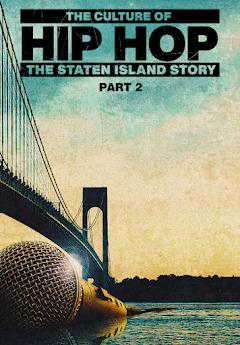Interview with Carl June

Carl June is a producer. He produced and co funded the production documentary "The Culture Of Hip Hop: The Staten Island Story".
What are the key takeaways that you want people to take from the documentary, and what would people find interesting?
I think we would like people to understand that in New York City, the so called forgotten borough, Staten Island, there was a whole, just a general different hip hop music that came out of Staten Island that was pretty kind of unrecognized, besides the iconic group of Wu Tang.
Is there anything in the documentary that may surprise people?
Yes, I think what would surprise people are the many groups that came out of Staten Island. For instance, the UMCs, Force MDs, Shyheim, King Just. These are a lot of groups that are from New York, but a lot of people didn't realize that they were from Staten Island.
How did you become involved with this project?
Well, myself and my partner went to film school about a few years ago, and we just love the art of filmmaking, so myself and him just decided, let's put a documentary together, relating to our experience of Staten Island and the music from Staten Island. So, that's how it came about.
Many people have a negative assessment of hip hop. What do you think about this?
I think there's different genres of hip hop, for instance, just growing up when you had rock and roll people, the next generation had their opinion on it, and then all different types of general music. I believe people have just different aspects of it and everything. And just like you have from country music, you have certain lyrics in there, certain songs, disco, even to hip hop. You know, there's also negative and there's also positive. So, it's just how you perceive it for yourself, I believe.
What do you like about hip hop?
I just like how hip hop, just the music, the beats towards it, also the lyrics and everything that's actually saying something. You know, some of the lyrics could be actually relating to somebody's environment. Some of the lyrics could be uplifting or just happy or just what's on your mind. So, as a whole, just the whole culture of hip hop, from dancing, to the way people wear their clothing, just the whole style of hip hop.
How do you think hip hop has changed over the years?
I think over the years it's definitely more commercialized where now you see hip hop. For instance, there's gonna be a Sprite commercial, a McDonalds commercial. So, I think now it's - well, it is a billion dollar business. So, I think it definitely is marketable and profitable and everything. So, it definitely changed from just in the city to now it's worldwide.
Who are your favorite hip hop artists?
Well, I like, the so called the old hip hop artists, for instance, LL Cool J, Brand Nubian, Queen Latifah, MC Lite, and, of course, Wu Tang, and, of course, a lot of the groups that actually are on this documentary that really a lot of I know personally and everything. So, just seeing them, just being their peers, going to high school with them and everything, I definitely know it's a process. So, I enjoy their music.
What are your favorite tracks and why?
Some of my favorite tracks, for instance, I like uplifting tracks where, for instance, you had the UMCs where they had "One to Grow On" basically just telling about life in general, where the lyrics are basically about life. Sometimes you have to learn from your mistakes and move on. So, that's one of the lyrics that I like from one of my favorite groups, the UMCs.
